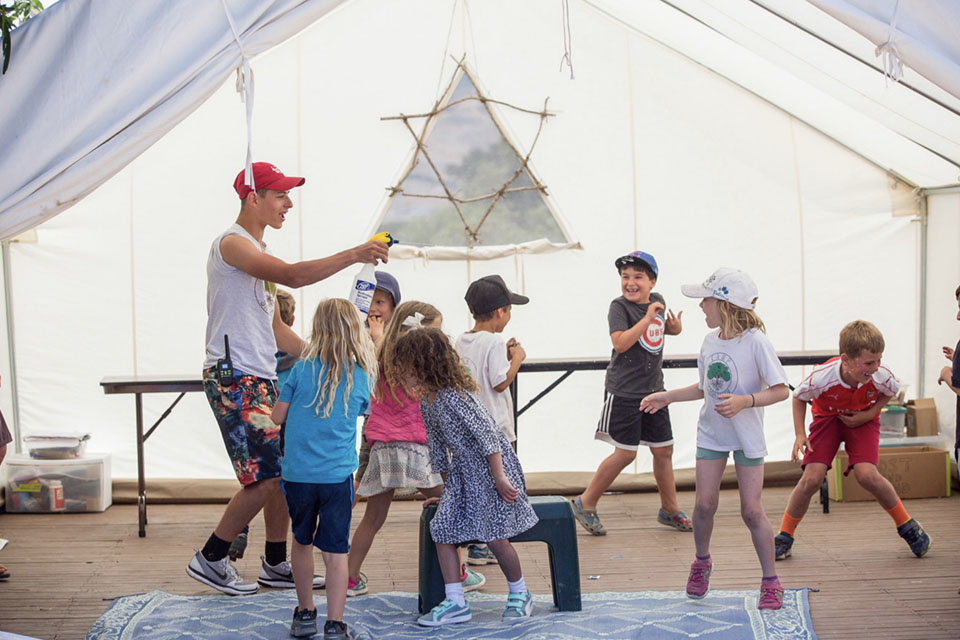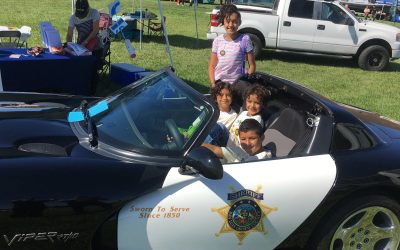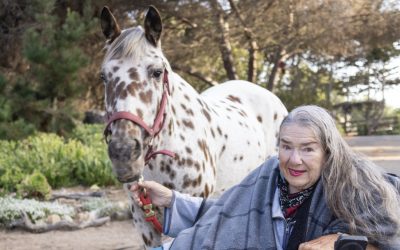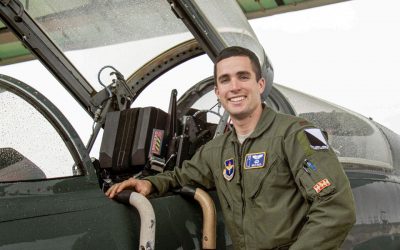Here’s a truly shocking statistic: Fully 30 percent of Millennials—anyone born between 1980 and today—have never heard of the Holocaust. As a baby boomer, I find that alarming. The post-WWII world into which I was born rang loudly with the clarion call, the sacred promise, that we must never forget. And yet, with every passing generation, the sharp horror of that history is dulled, even denied by some who wish to re-write it. To ensure that we never forget, nor lose the chance to learn from one of humanity’s darkest hours, impassioned efforts to educate new and future generations are underway. Not just to keep the truth about the Holocaust ever present, but also to celebrate the loving and joyful centuries-old traditions and rich cultural legacy of the Jewish communities that thrived, both long before and decades after those awful few years.
Locally, those efforts were demonstrated last month, when the first Central Coast Festival of Jewish Learning brought students and teachers, young and old, Jews and Gentiles, Arabs and Israelites, a Holocaust survivor and Nazi war criminal prosecutor together—for an unforgettable weekend. It was a singularly unifying, uplifting event— one that festival founder, Lauren Bandari, hopes will serve to keep the history, truth, and stories alive, to support the continuing education of all, and to foster our fervent belief in the goodness of humanity.
Executive Director of Jewish Community Center-Federation San Luis Obispo, Bandari was inspired to launch the ambitious event by two things: her own upbringing in an observant Jewish home in Highland Park, a suburb of Chicago; and by her later professional experience at Harley Davidson Motor Company. The former instilled a deep, foundational reverence for the rituals, services, liturgy, and kosher traditions that ensure a lasting link between modern Jewish life and the ancestors who came before. The latter opened her eyes (in ways that not even Europe could surpass) to a world outside the one she knew. Traveling the country for Harley Davidson, Bandari met people from all walks of life, of every color, creed, and belief system.
“It was such an awakening,” she exclaims. “I learned that all of us [from Harley dealers who were former Hell’s Angels to dealers holding their MBAs] share a common humanity, a common desire—in whatever way we can—to make the world a better place.”
Bandari was one of three girls raised by an attorney (her father) and an artist (her mother). Though her mother struggled with cancer for years, Bandari recalls the tenacity with which Marlene Rubenstein Nathan kept her family connected to their cultural and religious heritage. Lauren was just 14 when her mother died, but her influence was fierce and lasting.
“We kept kosher,” said Bandari, meaning things like no pork, no shellfish, no milk with meat, as well as attending services and observing all the traditional Jewish holidays.
“We spent whole days or weeks preparing for our holidays,” she recalls, “and it was a happy thing.” For example, she remembers making matzo ball soup while the Motown sound filled their kitchen. “My mother was sick a lot so she had a deep appreciation for what touched our souls. And that could be anything—from soul music to the Seder.”
So steeped in Jewish customs and culture was her neck of the woods that public schools closed for Jewish holidays. She and her sisters also attended Hebrew school and a Jewish overnight camp in the summer. But it was traveling the U.S. and Canada with a group of teens called USY on Wheels that inspired the professional path she would later take. Filled with indescribable moments, that trip included things like saying morning prayers at The Grand Canyon, or holding mid-day services at a Midwestern bus station while fellow travelers looked on – with curiosity, not judgment.
The welcome these young people received in the most unlikely of places would later be held in stark contrast to the ugly anti-Semitism Bandari would experience in parts of Europe. Just one of many examples of that was her trip to Auchwitz (perhaps the most famous of the concentration camps and the site of the largest mass murder in human history) where Bandari watched in horror while people gleefully posed for wedding photos there. Was it because they did not know, or they just did not care?
Bandari earned her bachelors in History (with a Jewish Studies concentration) from the University of Wisconsin-Madison, and her masters in Public Administration from the University of Illinois- Chicago, with a focus on nonprofit management. In addition to her stint with Harley Davidson, Bandari also worked for Sotheby’s and two university presses before moving to San Luis Obispo with her cardiologist husband, Dr. Armin Bandari.
Lauren and Armin have three boys, two 9-year-old twins Arie and Isaac, and 5-year-old Simon. “There’s a lot of energy in our house,” she laughs. “But we try to stay as rooted as possible.”
A personal encounter with Rabbi Rachel Isaacs intensified Bandari’s commitment to strengthen Jewish communities everywhere and to invite others to learn, connect, and grow together. Isaacs is a professor at Maine’s Colby College and the first openly gay rabbi in the Conservative movement to lead a congregation. She was famously invited to lead the Hanukkah celebration at the White House when Barack Obama was president.
“She taught me how to leverage being near a college and in a small town in order to bring communities together,” Bandari explained. “There is no Jewish Studies department at Cal Poly,” she continued. “So this festival is a way to invite the public to enrich their lives by hearing our stories and sharing their own. Our liturgy reminds us to do this hard work, to reach out, to never give up in the search for hope and the goodness of humanity. I feel privileged to offer this to the larger community. When we all come together … that’s where the magic is.”
Held at Cal Poly’s University Union, this first festival took place between May 17 and May 19. Amid the myriad classes, lectures, tours, hikes, bike rides, meals, prayer services, dances and discussions, three keynote addresses stood out: On the opening day, Holocaust survivor Gitta Ryle and Judge Bruce Einhorn, a Nazi War Crimes Prosecutor shared the stage and riveted the audience with first-person testimony of The Holocaust and How the World Responded.
On Saturday, former Egyptian refugee-turned-Hebrew language professor Hussein Aboubakr Mansour told his compelling story recounting the journey from anti-Semite to humanity-loving Hebrew teacher.
And on Sunday, Aaron J. Tapper, Ph.D. (brother to CNN’s famous commentator Jake Tapper) spoke about the many misconceptions held about Jewish people (“Funny, You Don’t Look Jewish!”), and the concepts of inclusion and exclusion.
Which brings us to the heart and soul of the event. When asked to sum up its mission, Bandari said it’s all about inclusion, not exclusion. She wants the festival to appeal to everyone; to gather, to connect, and to share. To unite in our common commitment to make the world a better place, to never forget the lessons of the Holocaust, and to foster the belief that the bright lights of love and truth will drive out any darkness.





